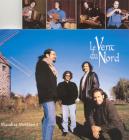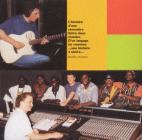20
Country (Western) music was popular in waves; self-produced albums could sell as many as 15,000 copies; the performers criss-crossed Quebec, from festivals to small venues, in a parallel network where they sold directly to the public; Willie Lamothe sold 250,000 copies of a single title.21
Record sleeve, singer and folklorist Jacques Labrecque1950
Montreal, Quebec, Canada
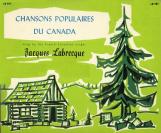 Credits:
Credits:Phonothèque québécoise collection
22
Jacques Labrecque sang with the Variétés lyriques in the 1930s, and then became passionate about folk songs. He founded the Musicana and then Les Éditions du patrimoine, producing his own records, those of violinist Jean Carignan, and anthologies of traditional music from the different regions of Quebec (albums that were beautifully documented and presented).23
Serpentins recording in Terrebonne with Benoit Bourque, Serge Parent, Jean Morin and others.1976
Terrebonne, Quebec, Canada

24
The group Eritage in Winnipeg with Benoit Bourque, Vincent Ouellet, Raynald Ouellet and others.1982
Winnipeg, Manitoba, Canada

25
The growing interest in world music helped traditional Quebec music to find an audience, following years of drought. The group La Bottine souriante enjoyed unheard of successes. New generations created hybrid forms or, on other other hand, purist approaches, some of them musicological. Groups such as Barde, Eritage, Le Rêve du diable and later, Le Vent du nord, La Volée de castors, Genticorum and many others each enriched the repertoire in their own way. The heritage left by people like Carignan, Soucy, Bouchard and Montmarquette was taken on by Philippe Bruneau, Gabriel Labbé, Danielle Martineau, Michel Faubert and a few others.26
At the Carrefour mondial de l'accordion in Montmagny with Marip Loiselle, Richard Forest and others4 September 1994
Montmagny, Quebec, Canada
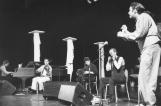
27
Georges Sapounidis, bouzouki, during the recording of 'Petit fou'.January, 2001
Montreal, Quebec, Canada

28
Gaston Bernard during the recording of 'Petit fou'January, 2001
Montreal, Quebec, Canada
 Credits:
Credits:Phonothèque québécoise collection
31
Record sleeve from Tiken Jah Fakoly (Nuits d'Afrique label)2000
Montreal, Quebec, Canada
 Credits:
Credits:Phonothèque québécoise collection
32
Record sleeve from the Festival Nuits d'Afrique 1999 compilation1999
Montreal, Quebec, Canada
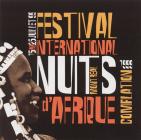 Credits:
Credits:Phonothèque québécoise collection
